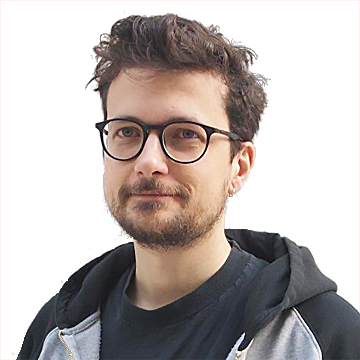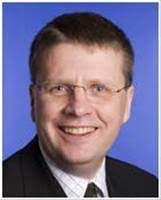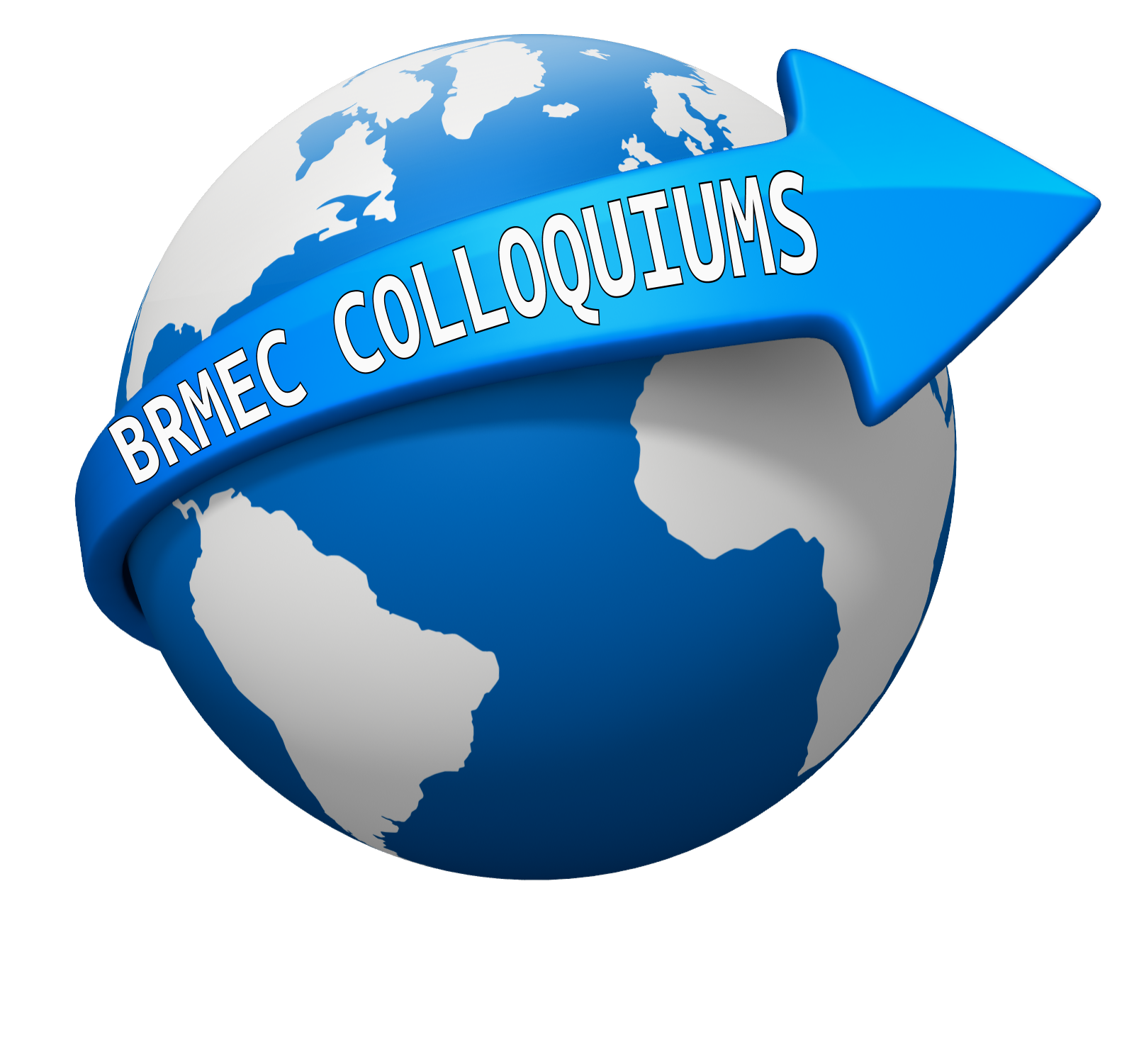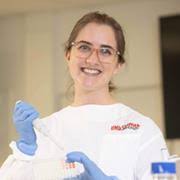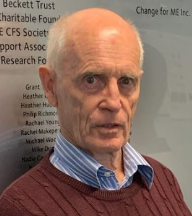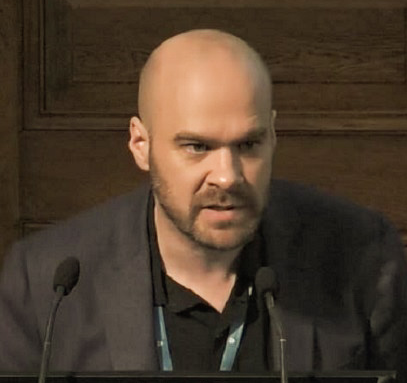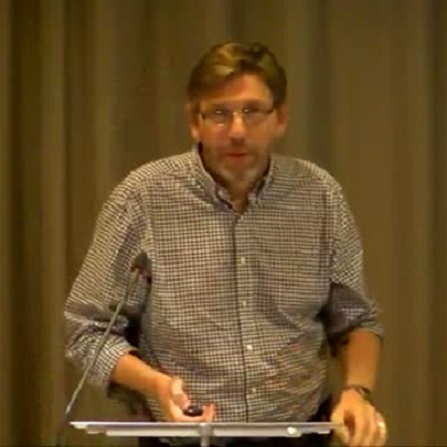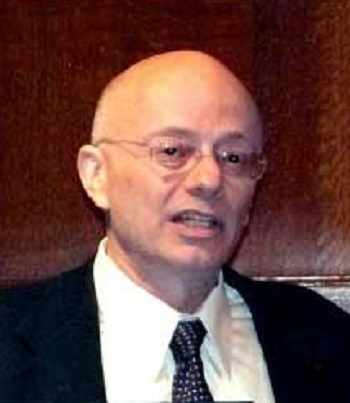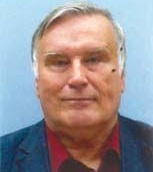The 11th Biomedical Research into ME Research Colloquium will take place on 18 - 19 May 2022.
Due to the pandemic the event will be held as a virtual event.

Welcome to BRMEC11
Day 1 of the Colloquium.
BRMEC11 is the eleventh Biomedical Research into ME Colloquium organised by the charity.
All delegates to BRMEC11 will have received instructions on joining the meeting via email beforehand including information
about the topics under discussion.
Each day will begin promptly at the published times.
HISTORY of ME ()and LONG COVID)

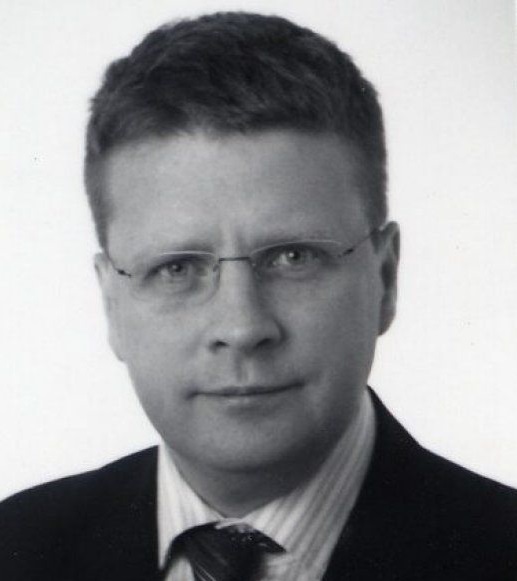
The Colloquium begins with an overview of the history of ME and Long Covid in order to give a foundation for discussions.
Ever since the Spanish flu in 1917-18 there have been reports on long term illness following viral infection and it’s about time that this is recognised as ME.
This session will contain an overview of the history of ME and of long term illness following viral infection - and a history of long covid –
describing any parallels and regarding the relationship, real or otherwise, between Long COVID and ME.
Insights gained from an understanding of Long COVID may help improve our understanding of the aetiologies of ME and aid in providing new treatments.
Professor Friðbjörn Sigurðsson
Dr Friðbjörn Sigurdsson is Program Director Internal Medicine, Landspitali University Hospital in Rejkjavik, Iceland.
CURRENT POSITIONS
- Program Director Internal Medicine, Landspitali University Hospital (since October 1 2013)
- Attending Medical Oncology, Landspitali University Hospital (since April 1 2001)
- Attending Hematology, Landspitali University Hospital (part time since May 2009)
- Medical Oncology and Hematology, Akureyri Hospital (part time since June 2010)
PREVIOUS POSITIONS
- Chief Internal Medicine, Landspitali University Hospital
- Chief Medical Council Landspitali University Hospital, Iceland
- Attending, Oncology, Landspitali Hospital, Reykjavik, Iceland
- Attending, Internal Medicine, Reykjavik City Hospital, Iceland
- Læknasetrið – private practice, Reykjavik, Iceland
- Chief Internal Medicine, Neskaupstadur Hospital, Iceland
- Chief Internal Medicine Vestman Islands Hospital, Iceland
- Stykkishólmur, heilsugæsla og sjúkrahús.
LONG COVID and ME

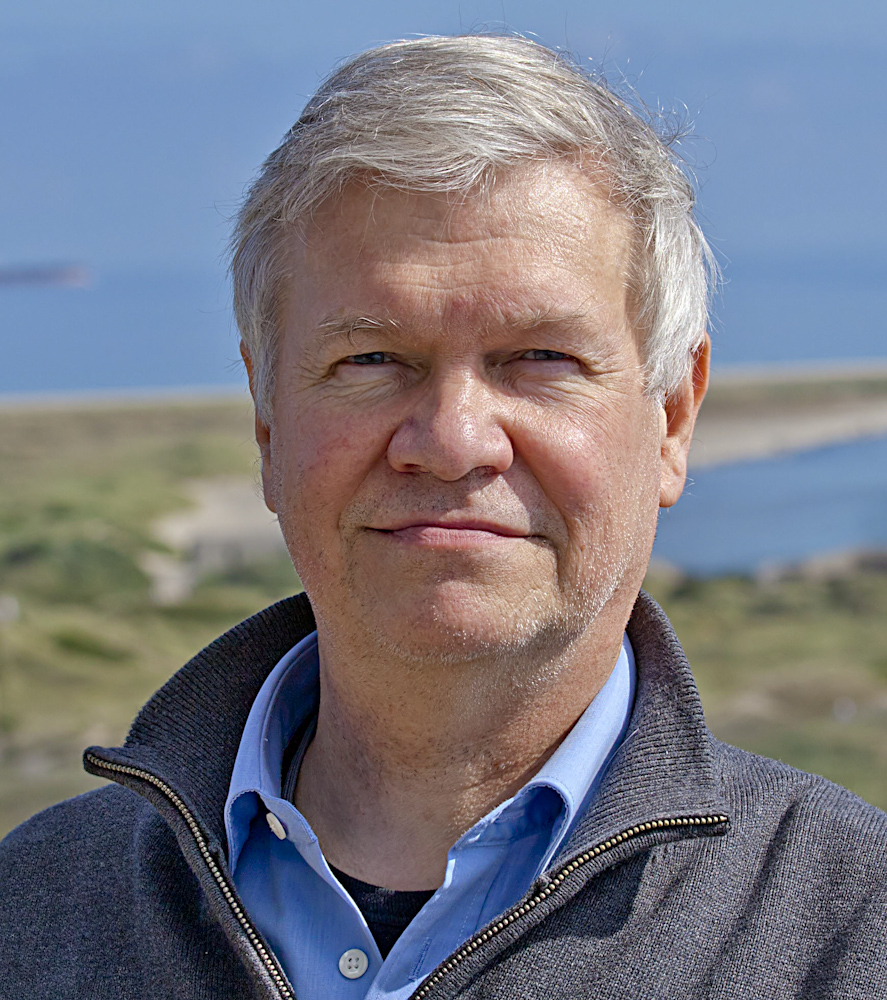
This session will look at similarities between ME and long covid using data from researchers who have been involved in long covid research.
Professor Markku Partinen
Professor of Medicine, University of Helsinki, Finland
Professor Partinen is a neurologist and an internationally well-known opinion leader and expert in sleep research and sleep medicine.
He is currently working as Research Director of the Helsinki Sleep Clinic, Vitalmed Research Centre.
He works also at Haartman Institute, University of Helsinki, and at Akademiska Sjukhuset, University of Uppsala.
His expertise covers sleeping, nutrition (what to eat), and other aspects of modern life and well-being.
His current research projects include narcolepsy, Parkinson's disease, insomnia, traffic accidents and daytime sleepiness.
He has published more than 250 articles in peer-reviewed international journals, several books and chapters.
He was recently (Now 2015) elected as the new President of the Finnish Parkinson Association. Professor Partinen is also a member of the European ME Research Group (EMERG) and European ME Clinicians Council (EMECC).
Host Virus Infection

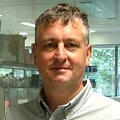
This session will look at Host Virus Infection.
Professor Tom Wileman, Quadram Institute, Norwich,UK
Career
2007- present Director, Biomedical Research Centre, University of East Anglia
1997-2005 Head of Department of Immunology and Pathology, Institute for Animal Health, Pirbright Laboratory, Woking, Surrey.
1994-1997 Head, Virus Cell Biology Group, Institute for Animal Health, Pirbright Laboratory, Woking, Surrey.
1991-1996 Assistant Professor, Department of Medicine, Harvard Medical School, Boston USA.
1991 - 1994 Assistant Professor, Division of Immunology, Beth Israel Hospital, Harvard Medical School, Boston, MA.
1988-1992 Claudia Adam's Barr Investigator in Cancer Research, Fellow of the Medical Foundation of the Charles King Trust and Basil O'Connor Scholar Award of the March of
Dimes Research Foundation, Dept Molecular Immunology, Dana Farber Cancer Institute, Harvard Medical School
1982-1988 BBSRC NATO Fellow and Fellow of the Parker Francis Pulmonary Research Foundation. Department of Cell Biology, Washington University Medical School, St Louis.
The Wileman group at the Quadram Institute studies how viruses activate autophagy during cell entry and replication.
CNS and IMAGING

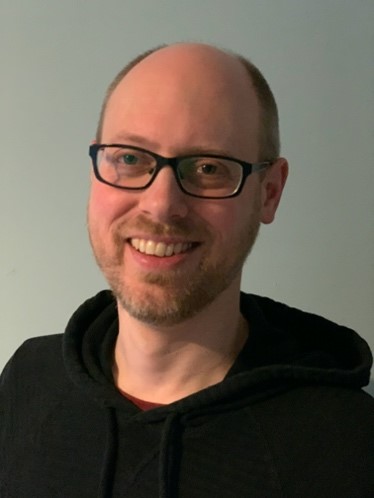
This session will look at similarities between ME and long covid using data from researchers who have been involved in long covid research.
Dr Simon McArthur
Senior Lecturer in Neuroscience & Pharmacology Clinical, Queen Mary University London, UK
Interested in the environmental influences that affect age-related neurological disorders such as Alzheimer’s disease,
and the biological mechanisms that underlie these links.
His research focuses on the role of microbial communities in the body, chiefly those in the mouth and the gut, and how
they interact with lifestyle factors such as diet and hygiene to affect brain health.
Principally study of how the products of microbial metabolism can interact with host systems,
particularly the two main defensive structures of the brain, the blood-brain barrier (BBB) and the microglia.
Has identified multiple different classes of microbe-derived metabolite that can exert positive and negative effects upon
BBB integrity and microglial phenotype in vitro and in vivo, and are now focused on investigating how targeting of microbial
communities can be used to promote brain resilience in the face of neuroinflammatory challenge.
A second branch of research is into the mechanisms of neuroinflammatory resolution, focusing particularly on the role of the protein annexin A1 and
its primary receptor FPR2.
In peripheral inflammation, has shown that annexin A1 via FPR2 acts to both recruit macrophages and promote their differentiation into a
pro-resolving phenotype, a key step in the regulated termination of inflammation.
Now investigating the role of the annexin A1-FPR2 system in microglia, given their close relationship to macrophages,
focussing on whether agonists for this receptor may have value as an approach to limit neuroinflammatory activity
in Alzheimer’s disease.
IMMUNITY

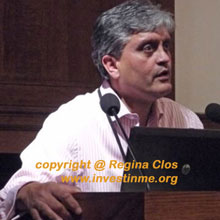
This session will look at how immune dysfunction may be linked with viral infections, endocrine abnormalities and impaired mitochondrial activity.
Consultant Immunologist, Spire Hospitals, Surrey, UK
Previously, Consultant in Immunology/Allergy and CFS/ME, Department of Immunology and Allergy, St Helier Hospital, Carshalton, Surrey.
History of ME and Long Covid

This section will look at the epidemiological evidence related to ME as well as reviewing the recent accruement of knowledge from COVID-19 research.
Hypotheses discussed include historical evidence for infectious agents including environmental and endogenous viruses and
bacteria being associated with the onset and “outbreaks” of ME
and
in relation to COVID-19, genetically susceptible individuals are at
increased risk of developing ME after SARS-CoV-2 infection resulting in an
increase of symptoms fulfilling the diagnostic criteria of ME amongst infected
individuals.
Speakers will represent these hypotheses which will then be discussed by delegates.
Professor Markku Partinen

Professor of Medicine, University of Helsinki, Finland
Professor Partinen is a neurologist and an internationally well-known opinion leader and expert in sleep research and sleep medicine.
He is currently working as Research Director of the Helsinki Sleep Clinic, Vitalmed Research Centre.
He works also at Haartman Institute, University of Helsinki, and at Akademiska Sjukhuset, University of Uppsala.
His expertise covers sleeping, nutrition (what to eat), and other aspects of modern life and well-being.
His current research projects include narcolepsy, Parkinson's disease, insomnia, traffic accidents and daytime sleepiness.
He has published more than 250 articles in peer-reviewed international journals, several books and chapters.
He was recently (Now 2015) elected as the new President of the Finnish Parkinson Association. Professor Partinen is also a member of the European ME Research Group ( EMERG) and European ME Clinicians Council (EMECC).
Kiran Thapaliya
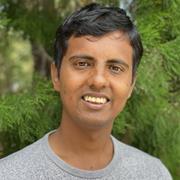
Research Fellow Menzies Health Institute - Disability and Rehabilitation, Griffith University, Australia
Kiran Thapaliya is working as a Research Fellow in the area of Neuroimaging with the National Centre for Neuroimmunology and Emerging Diseases (NCNED).
His main research interest lies in the development of medical imaging methods for the direct in vivo mapping of tissue microstructure
in Myalgic encephalomyelitis/chronic fatigue syndrome (ME/CFS).
His research focuses on understanding how changes in tissue microstructure influence MRI signals and the development of new neuroimaging methods
to identify biomarkers for ME/CFS.
Current projects:
Project 1: Investigation with advanced functional MRI of regulatory dysfunction in ME/CFS
Our research to date has detected abnormal autonomic control and impaired connectivity within the brainstem and default mode network. Multiple outcomes of
our analysis have indicated an unexpected upregulation of myelin in ME/CFS. This project will apply functional MRI with improved SNR and spatial
resolution to identify the nature and source of dysregulation within the brain.
Project 2: Assessing ME/CFS pathophysiology with quantitative brain MRI
Preliminary results from our brain MRI research indicated irregularities in myelin and iron levels in the brain in ME/CFS. This project will apply expertise
developed within our group with ‘multi-echo’ MRI acquisitions to quantify regional levels of myelin and other physiologically relevant measures.
It will also explore with high spatial resolution the potential to localise and characterise regulatory nuclei within the brainstem.
Assistant Professor Maria Eugenia Ariza
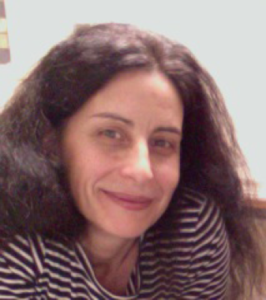
Assistant Professor Maria Eugenia Ariza Department of Cancer Biology and Genetics, The Ohio State University, USA
Maria Eugenia Ariza received her PhD degree in Medical Microbiology and Immunology and is currently a Research Assistant Professor in the Department of Cancer Biology and Genetics, College of Medicine, at The Ohio State University.
She has a long-standing passion for understanding how viruses contribute to the pathophysiology of human diseases, specifically the role that the human herpesviruses and human endogenous retroviruses (HERVs) have in the development of autoimmune diseases and cancer.
Her studies were the first to demonstrate that the dUTPases from the human herpesviruses and HERV-K represent a new class of pathogen-associated molecular pattern (PAMP) proteins, which contribute to the immune pathology associated with several immune-mediated diseases, including chronic fatigue syndrome (CFS), SLE, psoriasis and pulmonary arterial hypertension. Her studies have identified this family of viral dUTPases as potential disease biomarkers and provide novel molecular targets for the development of alternative therapeutic agents/interventions for CFS, SLE and psoriasis.
Professor Branislav Milovanović
University Clinical Center Bezanijska Kosa, Department of Cardiology, Neurocardiological laboratory, Belgrade, Serbia
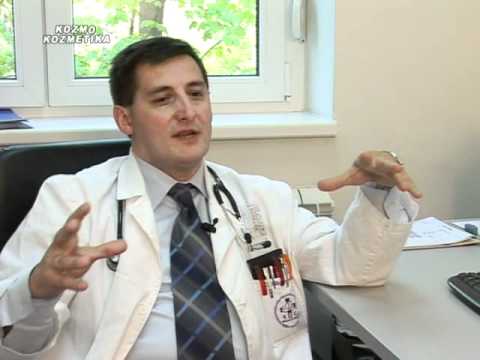
Prof. Dr. Branislav Milovanović is a specialist in internal medicine - a cardiologist from Belgrade. He is employed at the Bežanijska Kosa Clinical Hospital, in the position of the head of the Neurocardiology Laboratory, of which he is also the founder. He is a professor of cardiology at the Department of Internal Medicine at the Faculty of Medicine in Belgrade. He studied at some of the world's best cardiology centers, in Germany, Great Britain, Italy and America.
In Serbia, he is one of the first to deal with neurocardiology , a new scientific branch that studies the relationship between the nervous and cardiovascular systems. He introduced new diagnostic methods: nonlinear cardiology, short-term and long-term analysis of RR variability with spectral analysis, cardiovascular reflex tests with spectral analysis, and real time continuous measurement of blood pressure.
Prof. Dr. Branislav Milovanović founded the Section of the Serbian Medical Association for the Autonomic Nervous System, as well as the Association for Neurocardiology of Serbia, which is the fourth such association in the world.
He is the author of a large number of scientific papers published in domestic and foreign journals of importance, as well as one monograph. He is the organizer of numerous professional gatherings, through which he brought some of the world's biggest names in cardiology to Serbia. He often visits as a lecturer by invitation at foreign congresses. During his career, he received numerous awards, including the American Hypertension Association Award.
PRESENT POSITIONS
- • Head of Neurocardiological laboratory,CHC B.Kosa
- • Professor of Internal medicine and Cardiology,Medical faculty,University in Belgrade,Serbia
- • Professor of Internal medicine,Alma Mater Europea,University in Salzburg,Austria,European Center Maribor,Slovenia
- • Director of Internal Clinic University Clinical Center Bezanijska Kosa
TRAINING AND EDUCATION
- • Postdoctoral training
- • KreisKrankenhaus Ebersberg, Muenchen, Cardiology and Internal department
- • Laboratory for nonlinear dinamic, Klinikum recht der Isar,Department of Cardiology, University of Muenchen, September 1996 and 1997
- • Neurovascular Unit,St Mary`s Hospital,Imperial College,
- • Institute for Neurology,UCL,London ( after getting of Wellcome Trust Grant);25.1.1999.-25.2.1999.
- • RUSH University of Chicago,Department of Cardiology ,20.2.2000-20.3.2000.
- • Department of Cardiology, Instituto Auxologico Italiano, University of Milano, Ospedale San Luca, September 2001
- • Medical Licensure
- • 1987.Doctor in medicine,(MD).University of Belgrade
- • Residency
- • From 19.4.1990 to 20.5.1994.Specialists examination passed with an excellent grade at the school of medicine in Belgrade
- • M.Sci.
- • 1993:University of Belgrade
- • Doctoral degrees
- • 1994: Doctor of medical science,(PhD)
- • Syncope
- • All aspects of clinical investigation of autonomic nervous system in different diseases Noninvasive, electrocardiology, Chaos theory, Personalized medicine
- • Nano medicine
- • Placebo effect
- • Neurocardiology
Professor Friðbjörn Sigurðsson

Dr Friðbjörn Sigurdsson is Program Director Internal Medicine, Landspitali University Hospital in Rejkjavik, Iceland.Friðbjörn
CURRENT POSITIONS
- Program Director Internal Medicine, Landspitali University Hospital (since October 1 2013)
- Attending Medical Oncology, Landspitali University Hospital (since April 1 2001)
- Attending Hematology, Landspitali University Hospital (part time since May 2009)
- Medical Oncology and Hematology, Akureyri Hospital (part time since June 2010)
PREVIOUS POSITIONS
- Chief Internal Medicine, Landspitali University Hospital
- Chief Medical Council Landspitali University Hospital, Iceland
- Attending, Oncology, Landspitali Hospital, Reykjavik, Iceland
- Attending, Internal Medicine, Reykjavik City Hospital, Iceland
- Læknasetrið – private practice, Reykjavik, Iceland
- Chief Internal Medicine, Neskaupstadur Hospital, Iceland
- Chief Internal Medicine Vestman Islands Hospital, Iceland
- Stykkishólmur, heilsugæsla og sjúkrahús.
Dr Hanna Ollila
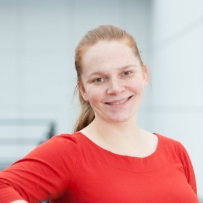
FIMM-EMBL Group leader.University of Helsinki Research Fellow at MGH and Harvard Autoimmunity, sleep and genetics
Dr Ollila received her PhD in 2013 from the Department of Psychiatry at the University of Helsinki, mentored by Dr Tiina Paunio and
Dr Tarja Porkka-Heiskanen (Stenberg).
For the following four years trained as a post-doctoral fellow at Stanford University, Department of Psychiatry and Behavioral Sciences
and was mentored by Dr Emmanuel Mignot and Dr Douglas Levinson examining the genetic underpinnings of type-1 narcolepsy.
In 2018 Dr Ollila joined Dr. Jonathan Pritchard's team at Stanford Univerisy training first as a research fellow and later as a visiting instructor.
Dr Ollila was co-mentored by Richa Saxena from Center of Genomic Medicine at Massachusetts General Hospital, Harvard medical school.
Dr Ollila's main research interests are genetic epidemiology of sleep and brain autoimmunity and she has over
30 publications in the field of sleep, narcolepsy and autoimmunity.
Professor Sonya Marshall-Gradisnik
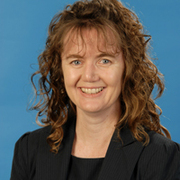
The National Centre for Neuroimmunology and Emerging Diseases (NCNED), Griffiths University, Australia
Professor Marshall-Gradisnik is one of Australia's foremost researchers in the area of neuroimmunology and has been instrumental in establishing the Public Health and Neuroimmunology Unit (PHANU) at Bond University. Much of her work relates specifically to autoimmunity in Chronic Fatigue Syndrome sufferers and she is regularly asked to speak to community groups on behalf of Queensland Health and NSW Health. Her research in the area of exercise immunology has also contributed to the body of knowledge relating to the effect of doping in sport and she serves as Sports Medicine Australia's national spokesperson in this area. The vital research conducted by Professor Marshall has attracted more than $1 million in grant funding and she has produced 21 peer-reviewed papers, five book chapters and one provisional patent. In 2008 Dr Marshall was joint leader of the Bond University team responsible for developing the the BioSMART program. The team was awarded a prestigious Australian Teaching and Learning Council Award (formerly known as the Carrick Award) for Outstanding Contribution to Student Learning and for the quality of student learning over a sustained period of time. Professor Marshall-Gradisnik is also leading The National Centre for Neuroimmunology and Emerging Diseases (NCNED), a research team situated at Griffith University on the Gold Coast. The team focuses on Myalgic Encephalomyelitis.
Other Links
Professor Ron Davis
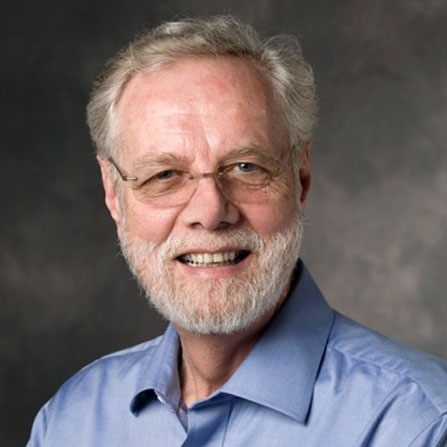
Professor of Biochemistry and Genetics at the Stanford School of Medicine in Stanford, California, USA
Ronald W. Davis, Ph.D., is a Professor of Biochemistry and Genetics at the Stanford School of Medicine in Stanford, California.
He is a world leader in the development of biotechnology, especially the development of recombinant DNA and genomic methodologies and their application to biological systems.
At Stanford University, where he is Director of the Stanford Genome Technology Center, Dr. Davis focuses on the interface of nano-fabricated solid state devices and biological systems.
He and his research team also develop novel technologies for the genetic, genomic, and molecular analysis of a wide range of model organisms as well as humans.
The team's focus on practical application of these technologies is setting the standard for clinical genomics.
Other Links
Dr Michael VanElzakker

Neuroscientist, Massachusetts General Hospital/Tufts University, USA
Dr. VanElzakker received a master's degree in behavioral neuroscience at the University of Colorado, working in Dr. Robert Spencer's neuroendocrinology laboratory, and a PhD in experimental clinical psychology at Tufts University, working in Dr. Lisa Shin's psychopathology neuroimaging laboratory. His postdoctoral fellowship is at Massachusetts General Hospital/ Harvard Medical School, at the Martinos Center for Biomedical Imaging, in the Division of Neurotherapeutics.
Dr. VanElzakker is interested in uncovering the mechanisms of post-traumatic stress disorder (PTSD), and of myalgic encephalomyelitis - also known as chronic fatigue syndrome (ME/CFS).
His PTSD research uses functional and structural brain imaging, behavioral attention tasks, blood, and genetic data to investigate what makes some individuals vulnerable to PTSD following trauma. He is interested in using non-invasive electroceutical medical devices to enhance safety learning, which may eventually serve as an adjunct to enhance exposure-based therapy for PTSD.
His ME/CFS research uses functional and structural brain imaging to look for abnormal patterns in brain metabolism and inflammation in this patient population. This research focuses on dysfunction at the intersection of the nervous and immune systems and posits that ME/CFS may be what happens when the nervous system detects an exaggerated and ongoing innate immune response. He is interested in using non-invasive electroceutical medical devices to enhance the anti-inflammatory vagus nerve reflex.
From The Center for Surgery, Innovation & Bioengineering
References
THERAPIES

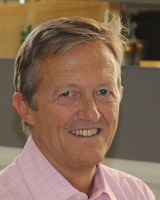
Dr Jesper Mehlsen
Research Director, Coordinating Research Centre, Bispebjerg and Frederiksberg Hospital, Denmark
Co-chair European ME Research Group
Expertise
Autonomic nervous system; Heart rate and blood pressure control; Cardiovascular physiology and pathophysiology;
HPV vaccines and -complications
Main research areas
Methods for the study of autonomic cardiovascular control; Mathematical modelling of cardiovascular control;
Autoimmune response to vaccination; Mathematical modeling of the neuroinflammatory reflex
Current research
Mathematical analysis of hemodynamic adaptations to the upright posture.
Mathematical analysis of hemodynamic response to Valsalva manoeuvre
Dynamic T-wave alterations and the autonomic nervous system
Mathematical analysis of cytokine response to LPS in humans
Autoimmunity in patients with possible side effects to HPV vaccination
Professor Leonard Jason, DePaul University, Chicago,USA
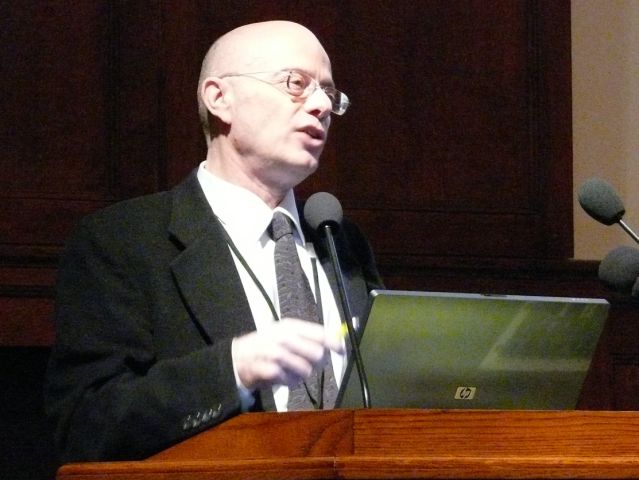
Professor Leonard Jason has been among the most prolific of all ME/CFS researchers. For more than a decade, Dr Jason and his team at DePaul University’s
Centre for Community Research in Chicago have worked to define the scope and impact of ME/CFS worldwide. Dr Jason
has been a key driver of ME/CFS research since 1991, and is
uniquely positioned to support collaboration between ME/CFS researchers, patients, and government decision makers. His studies have shown
that the direct and indirect costs of ME/CFS amount to $20 billion in the U.S. each year, and more than 1 million people suffer from ME/CFS as
opposed to the estimated 20,000 people originally reported by the CDC (Centers for Disease Control and Prevention).
Researchgate Professor Leonard Jason
Dr Hilma Hólm, Head of Cardiovascular, DeCode Genetics, Reykjavik, Iceland

Hilma received her medical degree from the University of Iceland in 2000.
She completed her internal medicine training at Baylor College of Medicine in Houston, and her clinical cardiology training at Emory University in Atlanta.
She then pursued research training in cardiovascular genetics at deCODE in Iceland.
Hilma has been on faculty at deCODE since 2008 and currently leads the company´s cardiovascular effort.
She is actively involved in a wide range of cardiovascular research, including lipids and atherosclerosis, conduction and arrhythmias, congenital heart disesae and
heart failure.
Hilma also completed training in clinical echocardiology at Mayo Clinic in Rochester, Minnesota, in 2014, and is actively involved with patient care at Landspitalinn,
the National University Hospital.
Source: https://www.decode.com/management/
ANS and Autoimmunity

Hypothesis: Autonomic dysfunction and autoantibodies
Dr Jesper Mehlsen

Research Director, Coordinating Research Centre, Bispebjerg and Frederiksberg Hospital, Denmark
Co-chair European ME Research Group
Expertise
Autonomic nervous system; Heart rate and blood pressure control; Cardiovascular physiology and pathophysiology;
HPV vaccines and -complications
Main research areas
Methods for the study of autonomic cardiovascular control; Mathematical modelling of cardiovascular control;
Autoimmune response to vaccination; Mathematical modeling of the neuroinflammatory reflex
Current research
Mathematical analysis of hemodynamic adaptations to the upright posture.
Mathematical analysis of hemodynamic response to Valsalva manoeuvre
Dynamic T-wave alterations and the autonomic nervous system
Mathematical analysis of cytokine response to LPS in humans
Autoimmunity in patients with possible side effects to HPV vaccination
Mitochondrial Dysfunction

Hypothesis: Mitochondrial metabolic dysfunction in ME
During this session, we will discuss potential causes of this mitochondrial metabolic dysfunction in ME, how it may relate to PEM and fatigue, and if attempts to revert it by pharmaceutical and diet manipulation will reverse or worsen ME symptom burden.
Associate Professor Rikke Katrine Jentoft Olsen
Research Unit for Molecular Medicine, Department of Clinical Medicine, Aarhus University, Denmark
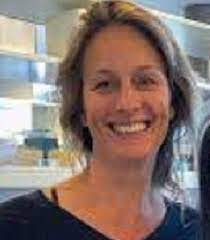
Our research group has a longstanding interest in inborn errors of mitochondrial metabolism with special focus on fatty acid oxidation disorders. We integrate genetic diagnostics of affected families with research into cell pathological mechanisms and novel treatment modalities in the form of mitochondrial vitamins/co-factors and anaplerotic compounds for the tricarboxylic acid cycle. In recent years, we have initiated research programs to understand the role that mitochondria may play in Myalgic Encephalomyelitis/Chronic Fatigue Syndrome (ME/CFS).
Besides science, Rikke KJ Olsen is an active member of the Neonatal Screening Program for inborn errors of metabolism in Denmark and board member of international scientific organisations within fatty acid oxidation disorders and ME/CFS.
Professor Karl Johan Tronstad
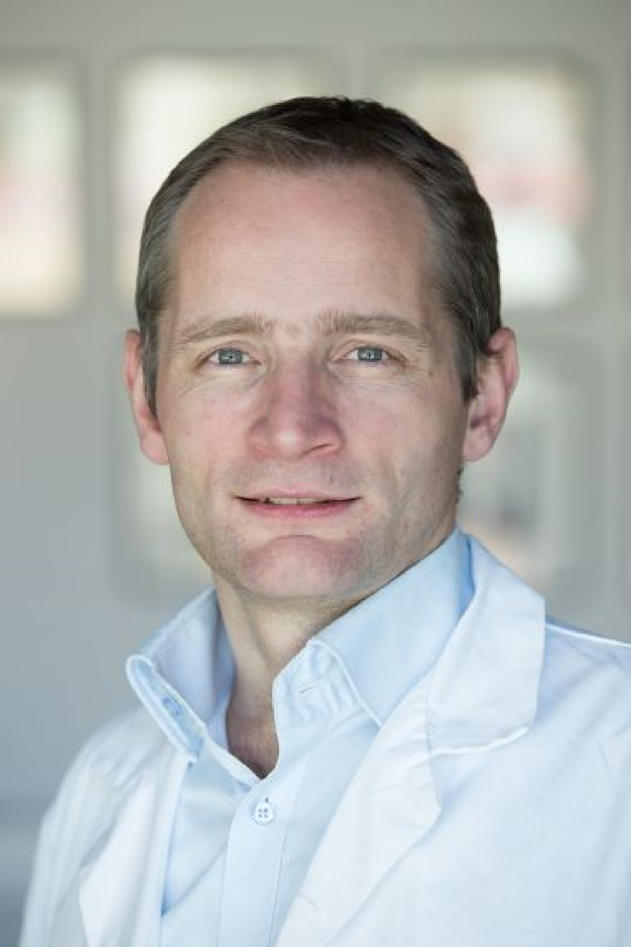
Professor Tronstad completed his graduate studies in biochemistry at the University of Bergen (UiB) in 2002. As postdoc at the Haukeland University Hospital, he studied bioactive compounds with the potential to modulate mitochondrial functions in cancer cells. In 2005 he was recruited to the Department of Biomedicine, UiB, where he started his research group to investigate metabolism and mitochondrial physiology. His laboratory seeks to better our understanding of how defective mitochondrial homeostasis may disturb cell physiology, and how this may be involved in mechanisms of cancer and Myalgic Encephalomyelitis/Chronic Fatigue Syndrome (ME/CFS).
Karl was involved with the recent paper to come from Bergen - Journal of Clinical Investigation Insight.
The Tronstad Lab investigates cell metabolism and mitochondrial biology.
Specialisms:
Metabolism, Cell biology, Mitochondria, Biochemistry
-
References
Dr. Bhupesh K Prusty, Principal Investigator, Institute for Virology and Immunobiology, Würzburg, Germany

Dr. Bhupesh Prusty is Group Leader in the Department of Microbiology at the University of Würzburg in Germany
Dr. Bhupesh Prusty finished his Doctoral studies in New Delhi, India and afterwards started his professional scientific life in Germany in 2006 with Prof. Harald zur Hausen.
Afterwards he started his own research group in 2014 and since then he has been involved with herpesvirus research.
As an independent researcher, he has made significant discoveries to understand molecular mechanisms of HHV-6/HHV-7 latency and reactivation. His major achievements
include identifying molecular mechanism of HHV-6 reactivation by telomeric-circle formation, the finding of HHV-6A infection in neuronal Purkinje cells of
bipolar patients and the characterization of mitochondrial dysfunction in ME/CFS.
His current research interest involves studying molecular biology of HHV-6/HHV-7 encoded small non-coding RNAs and their potential role in human diseases.
Professor Tom Wileman, Quadram Institute, Norwich,UK

Career
2007- present Director, Biomedical Research Centre, University of East Anglia
1997-2005 Head of Department of Immunology and Pathology, Institute for Animal Health, Pirbright Laboratory, Woking, Surrey.
1994-1997 Head, Virus Cell Biology Group, Institute for Animal Health, Pirbright Laboratory, Woking, Surrey.
1991-1996 Assistant Professor, Department of Medicine, Harvard Medical School, Boston USA.
1991 - 1994 Assistant Professor, Division of Immunology, Beth Israel Hospital, Harvard Medical School, Boston, MA.
1988-1992 Claudia Adam's Barr Investigator in Cancer Research, Fellow of the Medical Foundation of the Charles King Trust and Basil O'Connor Scholar Award of the March of Dimes Research Foundation, Dept Molecular Immunology, Dana Farber Cancer Institute, Harvard Medical School
1982-1988 BBSRC NATO Fellow and Fellow of the Parker Francis Pulmonary Research Foundation. Department of Cell Biology, Washington University Medical School, St Louis.
The Wileman group at the Quadram Institute studies how viruses activate autophagy during cell entry and replication.
Dr Amolak Bansal

Consultant Immunologist, Spire Hospitals, Surrey, UK
Previously, Consultant in Immunology/Allergy and CFS/ME, Department of Immunology and Allergy, St Helier Hospital, Carshalton, Surrey.
Professor Aletta D. Kraneveld
Chair Interdisciplinary Translational Pharmacology| Division of Pharmacology | Department of Pharmaceutical Sciences | Utrecht Institute for Pharmaceutical Sciences, Utrecht University , Netherlands

Aletta Kraneveld, full professor Interdisciplinary Translational Pharmacology at the Faculty of Science and the faculty of Veterinary Medicine of the Utrecht University
has published over 100 papers (H-index: 35).
Besides science, she is an active member of several (advisory) boards of national and international scientific organisations.
The Kraneveld group is focused on research into the role of the gut-immune-brain-axis in neurodevelopmental and neurodegenerative disorders
including the interaction of microbiota and their fermentation products with the immune and nervous system.
Professor Elisa Oltra, Head of the Genetic Expression and Immunity group of the Faculty of Medicine at the Catholic University of Valencia, Spain
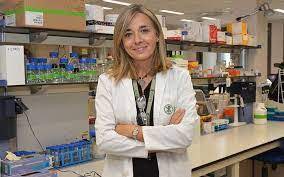
Elisa Oltra currently works at the Catholic University of Valencia, Valencia, Spain. Elisa does research in Cancer Research, Cell Biology and Genetics.
Dr Simon McArthur, Senior Lecturer in Neuroscience & Pharmacology Clinical, Queen Mary University London, UK

Interested in the environmental influences that affect age-related neurological disorders such as Alzheimer’s disease,
and the biological mechanisms that underlie these links.
His research focuses on the role of microbial communities in the body, chiefly those in the mouth and the gut, and how
they interact with lifestyle factors such as diet and hygiene to affect brain health.
Principally study of how the products of microbial metabolism can interact with host systems,
particularly the two main defensive structures of the brain, the blood-brain barrier (BBB) and the microglia.
Has identified multiple different classes of microbe-derived metabolite that can exert positive and negative effects upon
BBB integrity and microglial phenotype in vitro and in vivo, and are now focused on investigating how targeting of microbial
communities can be used to promote brain resilience in the face of neuroinflammatory challenge.
A second branch of research is into the mechanisms of neuroinflammatory resolution, focusing particularly on the role of the protein annexin A1 and
its primary receptor FPR2.
In peripheral inflammation, has shown that annexin A1 via FPR2 acts to both recruit macrophages and promote their differentiation into a
pro-resolving phenotype, a key step in the regulated termination of inflammation.
Now investigating the role of the annexin A1-FPR2 system in microglia, given their close relationship to macrophages,
focussing on whether agonists for this receptor may have value as an approach to limit neuroinflammatory activity
in Alzheimer’s disease.
Professor Kristian Sommerfelt, Paediatric Neurologist at Haukeland University hospital in Bergen, Norway
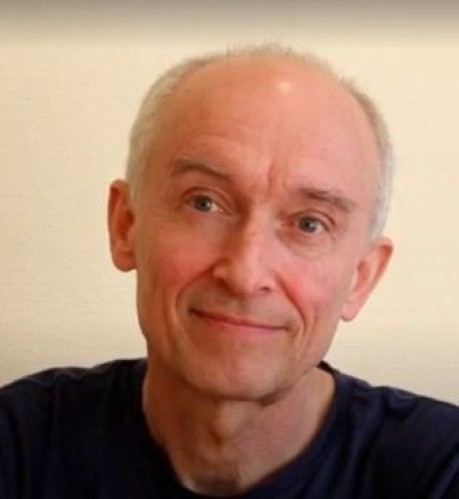
Professor Kristian Sommerfelt is a paediatric neurologist at Haukeland University hospital in Bergen, NorwayKristian Sommerfelt
Professor Sommerfelt wrote the national guidelines (2019) for diagnosis, treatment and follow-up of ME/CFS children/ young people for the website NEL (Norsk Elektronisk Legehåndbok) - which is a web-based methods used the most by general practitioner doctors and also used extensively in hospitals. Over the last eight years he has given lectures and presentations at courses and conferences for health professionals and others in addition to teaching medical students.
-
References
Professor Maureen Hanson, Cornell University, USA
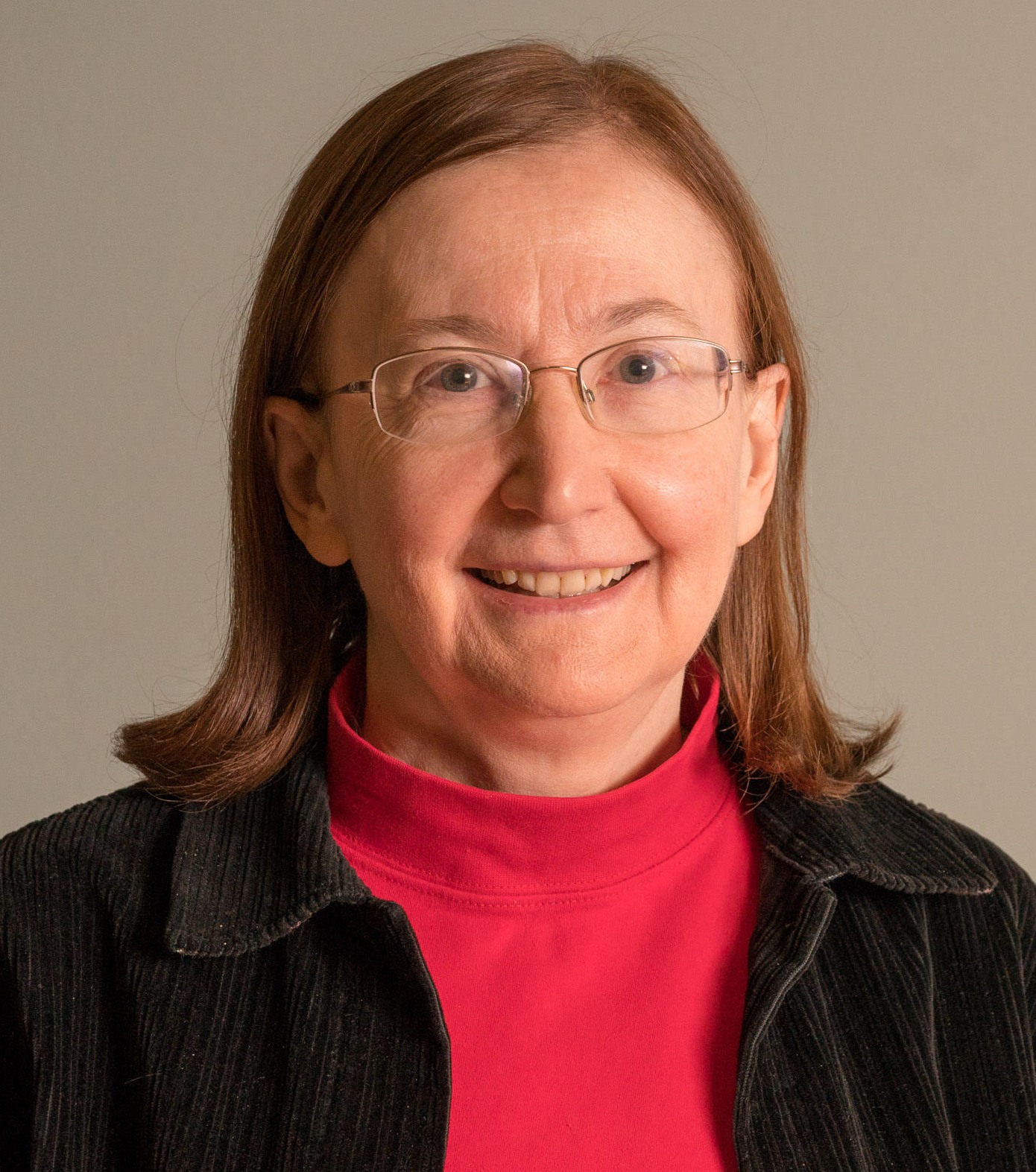
Maureen R. Hanson is Liberty Hyde Bailey Professor in the Department of Molecular Biology & Genetics. She received a B.S. degree at Duke University and a Ph.D. in Cell and Developmental Biology from Harvard University. After completing an NIH postdoctoral fellowship at Harvard, she joined the faculty of the Biology Department at University of Virginia. She moved to Cornell as Associate Professor and was promoted to Professor in 1991. She is presently a member of the graduate Fields of Genetics and Development, Plant Biology, and Biochemistry, Molecular, and Cell Biology. She has previously served as Associate Director of the Cornell Biotechnology Program and Director of the Cornell Plant Science Center. She is currently Director for the Center for Enervating Neuroimmune Disease.
-
References
Dr Linn Skjevling
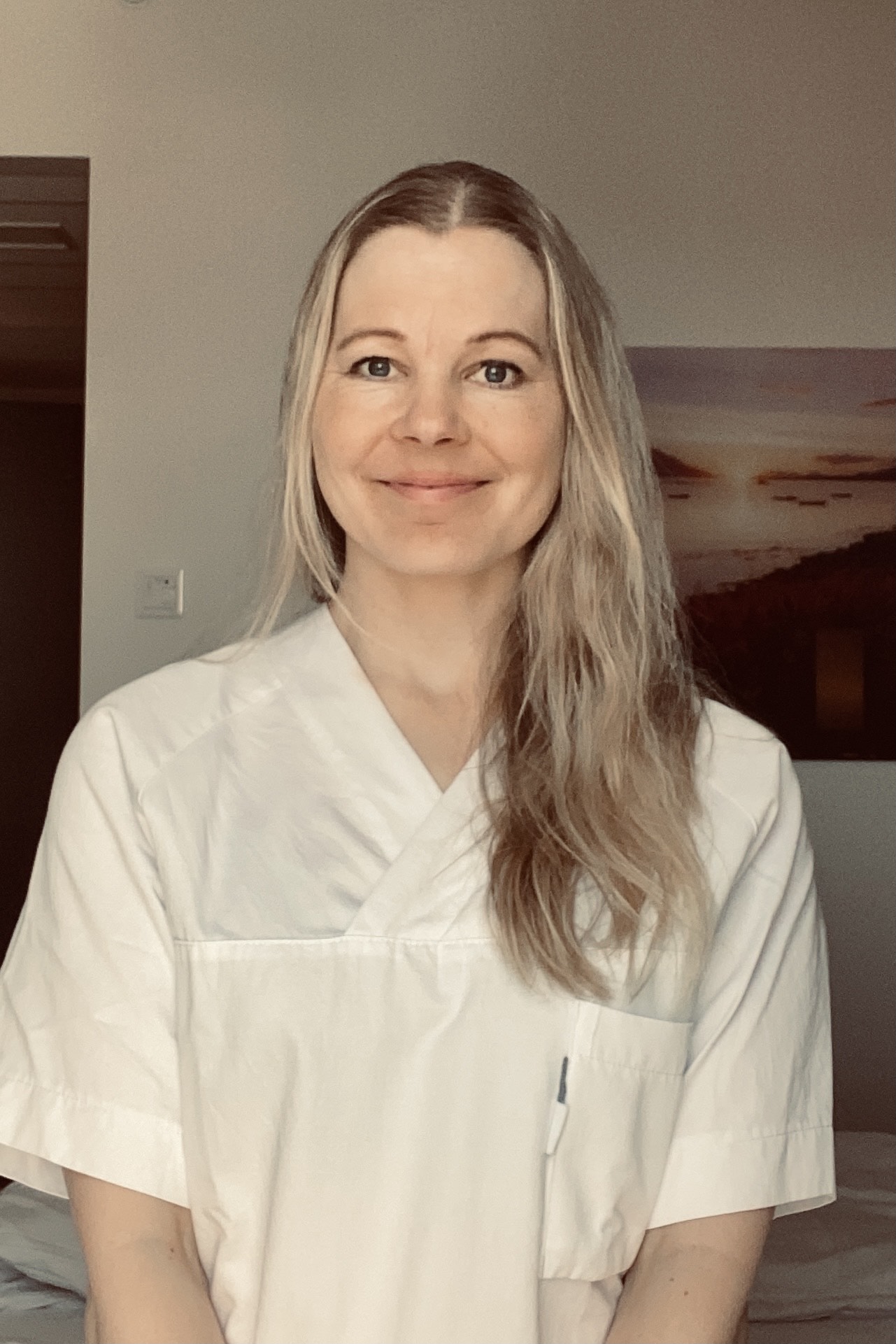
Doctor and research fellow
Research and Education Unit
Medical department
UNN Harstad
Norway
Dr Per Julin MD PhD
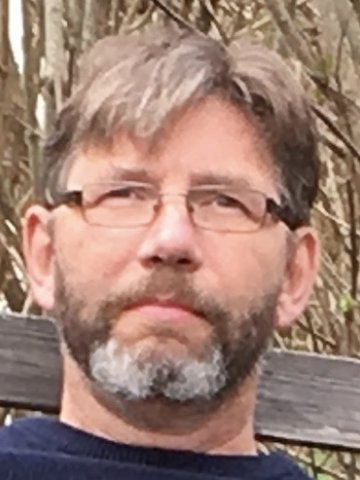
A specialist in Rehabilitation Medicine and previously senior consultant at the ME/CFS policlinic at Neurological Rehabilitation Clinic at Stora Sköndal Foundation.
His research area is the neurobiology of cognitive disorders from a broad perspective.
His main interest is in structural and functional neuroimaging using MRI or PET/SPECT in cognitive disorders, in relation to diagnosis and to symptoms but
also to effects of treatment/rehabilitation and in relation to other biomarkers.
Currently his focus is on myalgic encephalomyelitis/chronic fatigue syndrome (ME/CFS). Publications
SUMMARY - DAY 1

Day 1 summary

Welcome to BRMEC11
Day 2 of the Colloquium.

OVERVIEW of DAY 2
To be confirmed
To be confirmed
IMMUNOGENETICS

Hypothesis -Immune and Immune genetic factors drive the development and progression of ME/CFS
HOST-MICROBE INTERACTIONS

Hypothesis: Host microbe interactions that affect the gut brain axis can predispose to ME/CFS
HOST VIRUS INFECTION

Host Virus Infection Session
CNS

CNS session
CLINICAL and RESEARCH UPDATES

CLINICAL and RESEARCH UPDATES
THERAPEUTICS (CURRENT/FUTURE)

Hypothesis: Therapeutic strategies should target the triggering and subsequent signalling events that cause the hallmark clinical symptoms of ME.
SUMMARY - DAY 2

Day 2 summary
Research tools for ME/CFS-related data and biospecimens
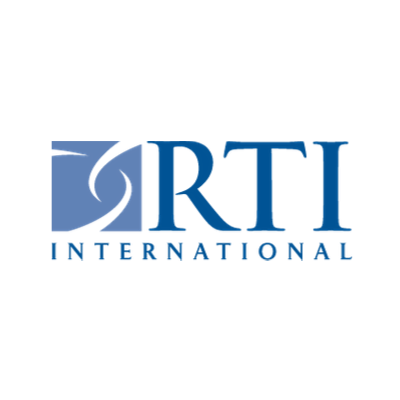
RTI International
Two new research tools developed by RTI International, the Data Management and Coordinating Center for the NIH-funded
ME/CFS Collaborative Research Centers (CRCs) Network, are now available to help advance ME/CFS research by allowing researchers
to access and share data and biospecimens.
An online data sharing platform that allows researchers to discover, share, and access data from multi-omic studies.
The platform was initially developed to support the ME/CFS Network CRCs that employ a variety of research methods
(e.g., microbiome screens, RNA sequencing, mitochondrial assays,
metabolomic assays) to identify potential biomarkers and study the underlying cause(s) of ME/CFS.
mapMECFS allows researchers to search the contents of data sets across multiple studies,
quickly compare results for specific molecules or markers of interest, and download relevant data to be used for exploration or validation studies.
Additionally, mapMECFS encourages and
facilitates sharing of new data by capturing key study metadata to make results easier to find.
An online, interactive search tool that allows researchers to query and request available biospecimens (e.g., DNA, RNA, urine, plasma, and peripheral blood mononuclear cells) based on specific demographic and clinical characteristics. The initial cohort, the Chronic Fatigue Initiative, was a research study supported by the Hutchins Family Foundation. Biospecimens and associated data were collected from 201 individuals with ME/CFS and 200 matched controls. The biospecimens are housed at the NINDS’ biomarker repository at Indiana University, and the data are hosted by RTI International. Investigators may also request access to just the clinical data for analysis. Additional cohorts’ biospecimens and datasets will be available in the future.
Open Discussion

this section is open to all delegates to discuss the preceding presentations
Break

A break for refreshments
To be announced

To be announced
To be announced

To be announced
To be confirmed

To be confirmed
Dr Aimée Parker, Research Associate, Quadram Institute Bioscience, Norwich, UK
Dr Stefano Romano, Quadram Institute Bioscience, Norwich, UK
Assistant Professor Bradlee Heckmann, University of South Florida, Health, Neuroscience Institute, Byrd Alzheimer's Center, USA

Bradlee L. Heckmann is an American biologist and neuroimmunologist who is currently an investigator at the Byrd Alzheimer's Center and USF Health Neuroscience Institute and assistant professor in molecular medicine at the USF Health Morsani College of Medicine. Prior to his faculty appointment, Heckmann held the John H. Sununu Endowed Fellowship[1] in immunology at St. Jude Children's Research Hospital. Heckmann's research is focused on understanding the regulation of inflammatory processes in the central nervous system, with particular emphasis on neurodegenerative diseases including Alzheimer's Disease[2] and the role of the autophagy machinery in this setting. Source: Wikipedia
Dr. Gerd Wallukat, UMax-Delbrück-Centrum für Molekulare Medizin, Berlin, Germany
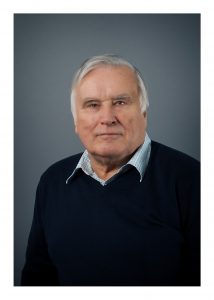
Dr. Wallukat led the research team that discovered the role of autoantibodies in dilated cardiomyopathy. He has been instrumental in investigating the role and function of autoantibodies in heart disease and other conditions at the Max-Delbrück-Center of Molecular Medicine in Berlin.
Dr. Wallukat also co-founded Affina Immuntechnik GmbH to to develop an adsorber for the new therapeutic option of immunoadsorption.
He is currently researching new ways to neutralize pathogenic autoantibodies without immunoadsorption.
Dr. Wallukat studied biology in Berlin and Leipzig and began his scientific work at the Institute of Cardiovascular Research of the Academy of Sciences with Prof. A. Wollenberger. After the unification of Germany he worked as head of a working group at the Max Delbrück Center of Molecular Medicine examining the immunology of cardiovascular diseases.
source:https://berlincures.de/the-team
Dr Avindra Nath, Clinical Director / Senior Investigator, Section of Infections of the Nervous System, National Institute of Neurological Disorders and Stroke (NINDS), USA
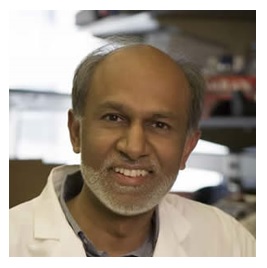
Dr. Nath received his MD degree from Christian Medical College in India in 1981 and completed a residency in Neurology from University of Texas Health Science Center in Houston, followed by a fellowship in Multiple Sclerosis and Neurovirology at the same institution and then a fellowship in Neuro-AIDS at NINDS.
He held faculty positions at the University of Manitoba (1990-97) and the University of Kentucky (1997-02).
In 2002, he joined Johns Hopkins University as Professor of Neurology and Director of the Division of Neuroimmunology and Neurological Infections.
He joined NIH in 2011 as the Clinical Director of NINDS, the Director of the Translational Neuroscience Center and Chief of the Section of Infections of the Nervous System.
His research focuses on understanding the pathophysiology of retroviral infections of the nervous system and the development of new diagnostic and therapeutic approaches for these diseases.
source:https://irp.nih.gov/pi/avindra-nath
- Nath A. Neuroinfectious diseases: a crisis in neurology and a call for action. JAMA Neurol. 2015;72(2):143-4.
- Uzasci L, Auh S, Cotter RJ, Nath A. Mass spectrometric phosphoproteome analysis of HIV-infected brain reveals novel phosphorylation sites and differential phosphorylation patterns. Proteomics Clin Appl. 2016;10(2):126-35.
- Li GH, Anderson C, Jaeger L, Do T, Major EO, Nath A. Cell-to-cell contact facilitates HIV transmission from lymphocytes to astrocytes via CXCR4. AIDS. 2015;29(7):755-66.
- Johnson TP, Patel K, Johnson KR, Maric D, Calabresi PA, Hasbun R, Nath A. Induction of IL-17 and nonclassical T-cell activation by HIV-Tat protein. Proc Natl Acad Sci U S A. 2013;110(33):13588-93.
- Douville RN, Nath A. Human endogenous retroviruses and the nervous system. Handb Clin Neurol. 2014;123:465-85.
- Long-Haul COVID
Dr. Brian Walitt, Medical Officer, Symptom Management Branch, Division of Intramural Research, National Institute of Nursing Research, USA

Dr. Brian Walitt’s research seeks to better define the nature of chronic symptoms. His expertise in epidemiology allows for the characterization of symptom disorders and their impact
on society.
As NINR’s Medical Officer, Dr. Walitt collaborates with the scientists in the Division of Intramural Research to understand the biological mechanisms for a wide array of symptoms,
including their effects on patients and how patients respond to interventions.
Increasing scientific understanding of the nature of symptoms will provide these individuals and their families with more clarity about their symptoms and potentially
translate into meaningful interventions.
Experience
Serves as the Acting Clinical Director of the National Center for Complementary and Integrative Health
Serves as the Medical Officer for the National Institute of Dental and Craniofacial Research
Completed his Internal Medicine residency training at George Washington University Hospital and his Rheumatology fellowship training at the MedStar Health Washington Hospital Center
Served as an Adjunct Associate Professor at Georgetown University
source:https://www.ninr.nih.gov/researchandfunding/dir/bwalitt
Emeritus Professor Warren Tate, Department of Biochemistry, University of Otago, New Zealand
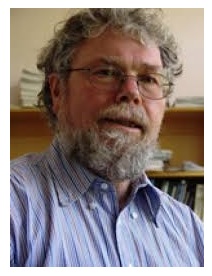
Emeritus Professor Warren Tate
from University of Otago in New Zealand - is an internationally respected biochemist, winner of the Royal Society of
New Zealand's top science honour - the 2010 Rutherford Medal, and was also named a Companion of the New Zealand Order of Merit.
His honour citation noted that Professor Tate was a molecular biologist, whose research had "revolutionised understanding" of
how proteins were synthesised in living cells. His research had shown how proteins contributed to memory formation and neurological disease,
and had important implications for HIV, Alzheimer's and chronic fatigue syndrome.
Emeritus Professor Warren Tate FRSNZ CNZM
• Professor Warren Tate has been an academic and researcher at the University of Otago in Dunedin, New Zealand spanning 54 years.
• He is a Fellow of the Royal Society of New Zealand, and internationally, a Fellow of the Alexander von Humboldt Foundation of Germany, and was an International Research Scholar of the Howard Hughes Medical Institute of the United States.
• He is currently an Emeritus Professor working full time but having formally retired in 2020
• Professor Tate’s research currently has a strong interest in unexplained human diseases.
• Initially he was a discovery molecular biologist with a fundamental interest in how proteins are made in our cells, and how protein synthesis and the genetic code arose 3-4 billion years ago. He co-discovered a new rare mechanism of gene regulation, translational frameshifting.
• Professor Tate also works on mammalian memory and Alzheimer’s disease and the development of a potential therapeutic agent based on a natural neuroprotective brain protein, secreted amyloid precursor protein alpha.
• Most recently in 2012 he established a research programme on Myalgic Encephalomyelitis /Chronic Fatigue Syndrome (ME/CFS) focussing on preclinical studies with New Zealand patients.
• Professor Tate approaches research on ME/CFS through the dual lens of an affected family of 30 years and a biomedical researcher. He has found molecular signatures for the illness supporting its biological basis and is now studying whether Post Covid-syndrome (Long COVID) long haulers who have ongoing illness from SARS-CoV-2 infection have the same molecular signatures found in ME/CFS.
Professor Tate is a Fellow of the Royal Society of New Zealand and of the New Zealand Institute of Chemistry.
He has been a Fellow of the Alexander von Humboldt Foundation of Germany, and an International Research Scholar of the Howard Hughes Medical Institute of the United States.
Read more:https://www.otago.ac.nz/biochemistry/people/profile/index.html?id=37
Professor Dr. Tanja Lange, Department of Rheumatology, University of Lübeck, Lübeck, Germany
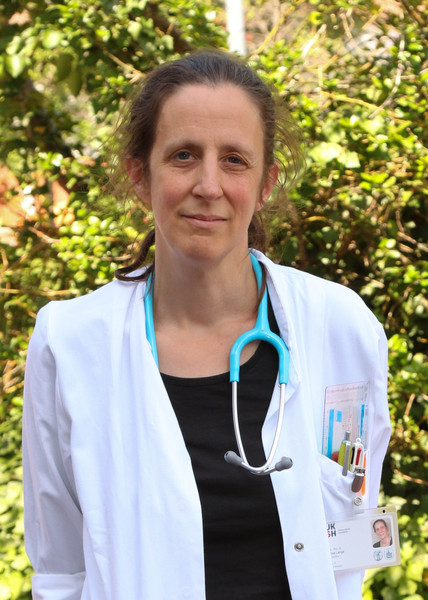
After Medical School Prof. Lange combined her clinical training in Internal Medicine with basic research on sleep-immune interactions in healthy individuals in the frame of DFG-funded interdisciplinary consortia on sleep and (immunological) memory formation. After her board certification and habilitation in Internal Medicine, she started her clinical training in Rheumatology, received a professorship for psychoneuroimmunology and currently delineates brain-immune interactions in patients with systemic autoimmune diseases.
Source: https://northship.org/about-us/tanja-lange/
Read more:https://www.grk1727.uni-luebeck.de/people/associated-scientists/tanja-lange.html
Immunity

MITOCHONDRIA AND ENERGY METABOLISM

Professor Jonas Bergquist

Full Chair Professor in Analytical Chemistry and Neurochemistry at the Department of Chemistry, Uppsala University, Sweden
Professor Begquist has a background as MD, Associate Professor of Clinical Neuroscience , Sahlgrenska University Hospital and the University of Gothenburg. Since 1999 , he has been a researcher in Uppsala, Sweden, and in 2005 was appointed professor of analytical chemistry and neurochemistry at the Department of Chemistry - BMC , Uppsala University. From 2011 he worked also as an adjunct professor of pathology at the University of Utah, Salt Lake City, Utah, USA.Other Links
Dr Eleanor Riley
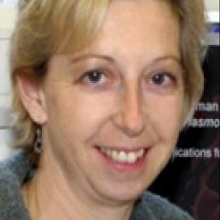
Professor of Immunology, LSHTM, UK
Professor Eleanor Riley BSc BVSc PhD FSB FMedSci
Eleanor Riley graduated from Bristol University with degrees in Cellular Pathology and Veterinary Science. After an internship in Veterinary Pathology at Cornell University (USA) she studied for a PhD in immunology and parasitology in the Department of Veterinary Pathology at the University of Liverpool. She began working on the immunology of malaria in 1985, as a member of the senior scientific staff at the Medical Research Council Laboratories in The Gambia, West Africa. In 1990, Eleanor moved to the University of Edinburgh as a Wellcome Trust Senior Research Fellow. Eleanor moved to the London School of Hygiene and Tropical Medicine in October 1998 where she is Professor of Infectious Disease Immunology. Eleanor is currently Chair of the BBSRC Bioscience for Health Strategy Advisory Panel and Deputy Chair of the MRC Infections and Immunity Board.Other Links
Dr Mike Murphy
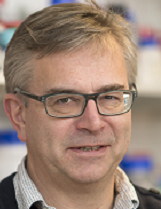
Programme Leader, MRC Mitochondrial Biology Unit, Cambridge
Dr Mike Murphy
EDUCATION & EMPLOYMENT1980-1984 BA in Chemistry, first class honours, first in class, Trinity College, Dublin, Ireland
1984-1987 PhD, Department of Biochemistry, University of Cambridge, UK
1988 Associate Research Scientist, Columbia University College of Physicians and Surgeons, New York
1989 Teacher with Voluntary Services Overseas (London) in Zimbabwe
1990-1992 Lecturer, Biochemistry Department, Trinity College, Dublin, Ireland
1992-2001 Lecturer/Senior Lecturer/Associate Professor, Biochemistry Department, University of Otago, New Zealand
1999 Sabbatical Visitor, Biozentrum, University of Basel, Switzerland
1999 Sabbatical Visitor, University of Alabama at Birmingham, USA
2000-2001 Associate Dean for Research, Otago School of Medical Sciences
2001-present Programme Leader, MRC Mitochondrial Biology Unit, Cambridge, UK AWARDS & HONOURS 1982 C Walter Jones Prize in Organic Chemistry
1982-1987 Foundation Scholarship
1984 Cocker Medal for Experimental Chemistry
1984-1987 Open Research Studentship, Peterhouse, University of Cambridge
2000 Applied Biosystems Medal, NZ Society of Biochemistry and Molecular Biology
2000 Research Medal of the New Zealand Association of Scientists
2001-present Honorary Fellow, Depts of Chemistry and Biochemistry, University of Otago
2008 The Nathan O. Kaplan Lecturer, University of California, San Diego
2012 Honorary Fellow of the Royal Society of New Zealand (Hon FRSNZ)
2016 Keilin Memorial Lecture and Medal EDITORIAL BOARDS
2003-present Biochemical Journal: Deputy chair (2007-), Editorial board (2003-)
1999-2014 Archives of Biochemistry and Biophysics: Editorial board
2009-2011 Current Opinion in Investigational New Drugs: Editorial board
2012-present Free Radical Biology and Medicine: Editorial board
2002-present FEBS Journal: Editorial advisory panel
2013-present Redox Biology: Editorial board
2013-present Redox Report: Editorial board
2010-present Free Radical Research: Editorial board
2003–2007 Biochemical Society Theme Panel III (Bioenergetics and Metabolism)
2001-present Scientific Advisory Board, Antipodean Pharmaceuticals, Auckland and San Francisco
2010-2013 Telethon Italy, Scientific Committee
2009-2011 Buck Institute for Aging Research, external advisory board for the U54 Interdisciplinary Research Center
PATENTS
Mitochondrially targeted antioxidants, Michael P. Murphy and Robin A. J. Smith, United States Patent US 6,331,532.
Mitochondrially targeted antioxidants, Michael P. Murphy and Robin A. J. Smith, United States Patent US 6,984,636.
Mitochondrially targeted antioxidants, Michael P. Murphy and Robin A. J. Smith, Australian Patent AU 763179.
Mitochondrially targeted antioxidants, Michael P. Murphy and Robin A. J. Smith, New Zealand Patent NZ 505352.
Mitochondrially targeted antioxidants, Michael P. Murphy and Robin A. J. Smith, United States Patent US 7,109,189.
Mitochondrially targeted antioxidants, Michael P. Murphy and Robin A. J. Smith, New Zealand Patent NZ 538371.
Triphenylphosphonium thionitrite nitric oxide donors, Michael P. Murphy and Robin A. J. Smith European Patent EP2066680.
Triphenylphosphonium thionitrite nitric oxide donors, Michael P. Murphy and Robin A. J. Smith. Canadian Patent CA 2664744.
Triphenylphosphonium thionitrite nitric oxide donors, Michael P. Murphy and Robin A. J. Smith. United States Patent US 12/732,909.
Mitoquinone derivatives used as mitochondrially targeted antioxidants, Michael P. Murphy and Robin A. J Smith, United States patent US 7,888,334.
Mitochondrially targeted antioxidants, Michael P Murphy and Robin A. J Smith, Canadian Patent CA 2311318
Other Links
Fane Mensah
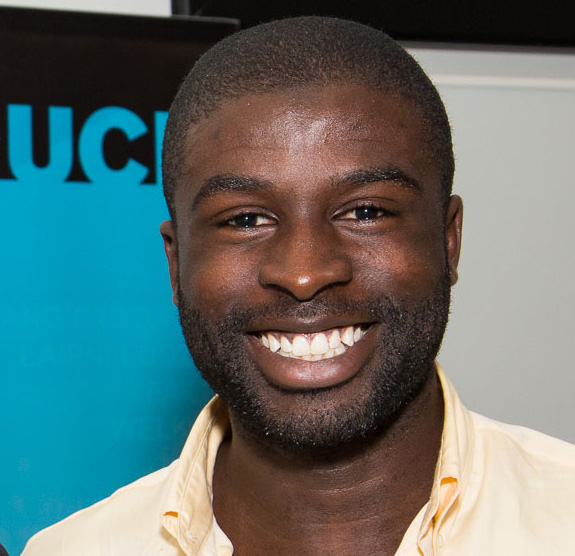
Research Assistant; Inflammation; Div of Medicine; Faculty of Medical Sciences, UCL, UK
Fane Mensah
Other Links
Dr Travis Craddock

Assistant professor of Psychology, Computer Science and Medicine, Institute for Neuro Immune Medicine, Nova Southeastern University, Miami, USA
Dr Travis Craddock
Travis Craddock, Ph.D. is an assistant professor of Psychology, Computer Science and Medicine applying systems biology and biophysics methods towards the purpose of identifying novel treatments for complex chronic illness involving neuroinflammation. His postdoctoral work was conducted under the supervision of Gordon Broderick, Ph.D., in the Broderick Laboratory for Clinical Systems Biology in the Department of Medicine, Faculty of Medicine and Dentistry at the University of Alberta. His work with Gordon Broderick, Ph.D., focused on using a theory driven systems biology approach to investigate neuroendocrine-immune interaction dynamics in neuroinflammation and its relation complex diseases such as Gulf War Illness, and chronic fatigue syndrome. This work was funded by the U.S. Department of Defense.
He received his BSc. in co-op physics from the University of Guelph and went on to finish a M.Sc. and Ph.D. in the field of biophysics at the University of Alberta under the supervision of Jack Tuszynski, Ph.D. His graduate research activities focused on subneural biomolecular information processing, and nanoscale neuroscience descriptions of memory, consciousness and cognitive dysfunction in neurodegenerative disorders such as Alzheimer’s disease.
Other Links
Dr Chris Armstrong

Department of Biochemistry and Molecular Biology, University of Melbourne, Victoria, Australia
Dr Chris Armstrong
Other Links
Dr Ingrid Rekeland
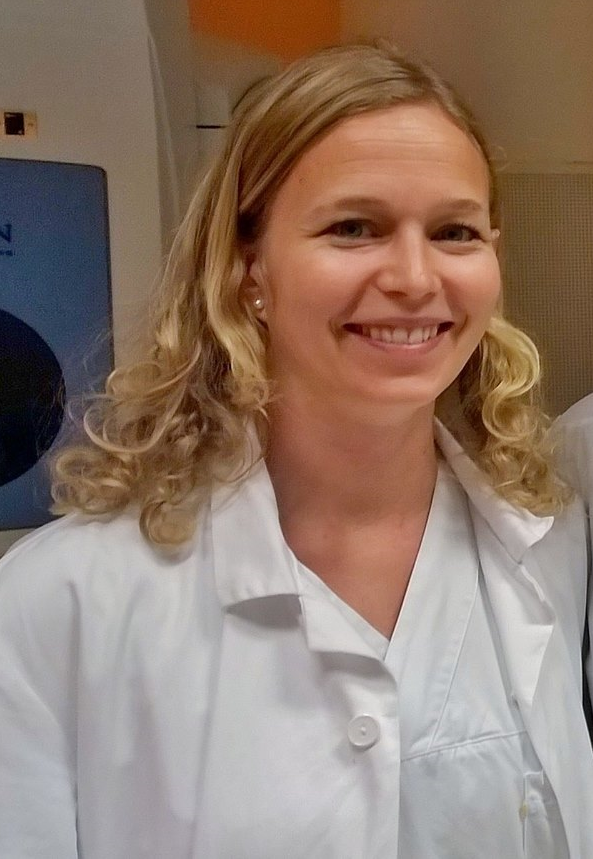
Neurology, Rheumatology, Clinical Immunology, Haukeland University Hospital , Bergen, Norway
Dr Ingrid Gurvin Rekeland
Other Links
Dr Lubov Nathanson
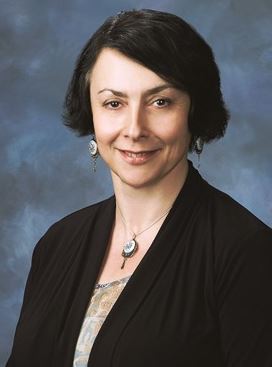
Genetics, Molecular Biology, Bioinformatics, Nova Southeastern University , Florida, USA
Dr Lubov Nathanson
Other Links
Professor Ola Didrik Saugstad
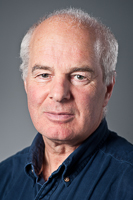
Professor - Paediatric Research Institute, Institute of Clinical Medicine, University of Oslo, Norway
Professor Ola Didrik Saugstad is a Norwegian pediatrician and neonatologist noted for his research on resuscitation of newborn children and his contribution to reduce child mortality.[2] Since 1991, he has been Professor of Pediatrics at the University of Oslo and Director of the Department of Pediatric Research at Oslo University Hospital, Rikshospitalet
Saugstad received the 2012 Nordic Medical Prize, is a member of the Norwegian Academy of Science and Letters and became a Knight First Class of the Order of St. Olav in 2010.
Other Links
Dr Asgeir Lande
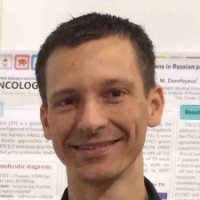
Institute of Clinical Medicine, University of Oslo, Norway
Dr Asgeir Lande
Other Links
Dr Katarina Lien
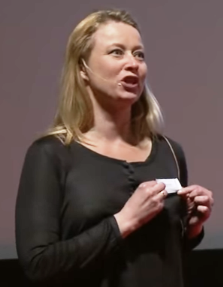
University of Oslo, Norway
Dr Katarina Lien graduated from the Faculty of Medicine, University of Oslo in 2000. I have clinical experience from primary care and psychiatry, and started working at the CFS/ME Centre at Oslo University Hospital in 2011.
She is particularly interested in pathophysiological mechanisms in chronic diseases.
In 2012 she received funding from The Norwegian Directorate of Health and The National Advisory Unit on CFS/ME, in order to gain experience on the use of CPET in patients with CFS/ME.
Currently, she is holding a research grant from the Norwegian ExtraFoundation for Health and Rehabilitation for the Ph.D. project “Cardiopulmonary exercise testing in patients with CFS/ME”.
She has been involved in the planning and implementation of the Rituximab trial RituxME, and is the local Principal Investigator at the CFS/ME Centre, Oslo University Hospital.
She is also engaged in CFS/ME patient education and information, and is a member of the Norwegian ME Association Scientific Advisory Board.
Other Links
- Norges ME Forening Presentations: IACFS/ME Biennial Conference. October 2016. International Association for CFS/ME. Fort Lauderdale, Florida: Lien K, Johansen B, Veierød MB, Haslestad AS, Melsom MN, Kardel KR, Iversen PO. “Blood lactate increases more rapidly after a previous exercise challenge in patients with chronic fatigue syndrome/myalgic encephalomyelitis (CFS/ME) than in healthy subjects” (manuscript in preparation). Publications: 1. Fluge, O., O. Mella, O. Bruland, K. Risa, S. E. Dyrstad, K. Alme, I. G. Rekeland, D. Sapkota, G. V. Rosland, A. Fossa, I. Ktoridou-Valen, S. Lunde, K. Sorland, K. Lien, I. Herder, H. Thurmer, M. E. Gotaas, K. A. Baranowska, L. M. Bohnen, C. Schafer, A. McCann, K. Sommerfelt, L. Helgeland, P. M. Ueland, O. Dahl and K. J. Tronstad (2016). "Metabolic profiling indicates impaired pyruvate dehydrogenase function in myalgic encephalopathy/chronic fatigue syndrome." JCI Insight 1(21): e89376.
Professor Warren Tate

University of Otago, New Zealand
Professor Warren Tate from University of Otago in New Zealand - is an internationally respected biochemist, winner of the Royal Society of New Zealand's top science honour - the 2010 Rutherford Medal, and was also named a Companion of the New Zealand Order of Merit. His honour citation noted that Professor Tate was a molecular biologist, whose research had "revolutionised understanding" of how proteins were synthesised in living cells. His research had shown how proteins contributed to memory formation and neurological disease, and had important implications for HIV, Alzheimer's and chronic fatigue syndrome. Professor Tate is a Fellow of the Royal Society of New Zealand and of the New Zealand Institute of Chemistry. He has been a Fellow of the Alexander von Humboldt Foundation of Germany, and an International Research Scholar of the Howard Hughes Medical Institute of the United States.
Other Links
Assistant Professor Petter Brodin
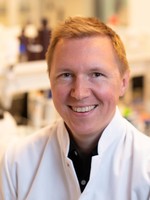
Karolinska Institutet, Sweden
Assistant Professor Petter Brodin's team at Karolinska Institutet in Sweden - is aiming to understand human immune system variation in health and disease, and understand the factors that shape human immune systems.
Other interests are in defining better metrics of immune system health and develoingp methods for better immune system analyses in human patients.
As a physician at the department of pediatrics at the Karolinska University Hospital, he has a particular interest in understanding when and how human immune systems are shaped early in life, and the influences by environmental exposures such as the microbiome, infections, vaccines, nutritional components etc in this process.
His team is firmly convinced that the way to understand human immune systems and their variation,
is to analyse all system components simultaneously and relathionships between these taken into account.
This have recently been made possible with the development of novel high-dimensional methods operating at single-cell resolution, such as Mass cytometry and scRNA-seq.
To analyze human immune systems at the systems-level, his team is developing novel experimental methods and algorithms for analyses.



